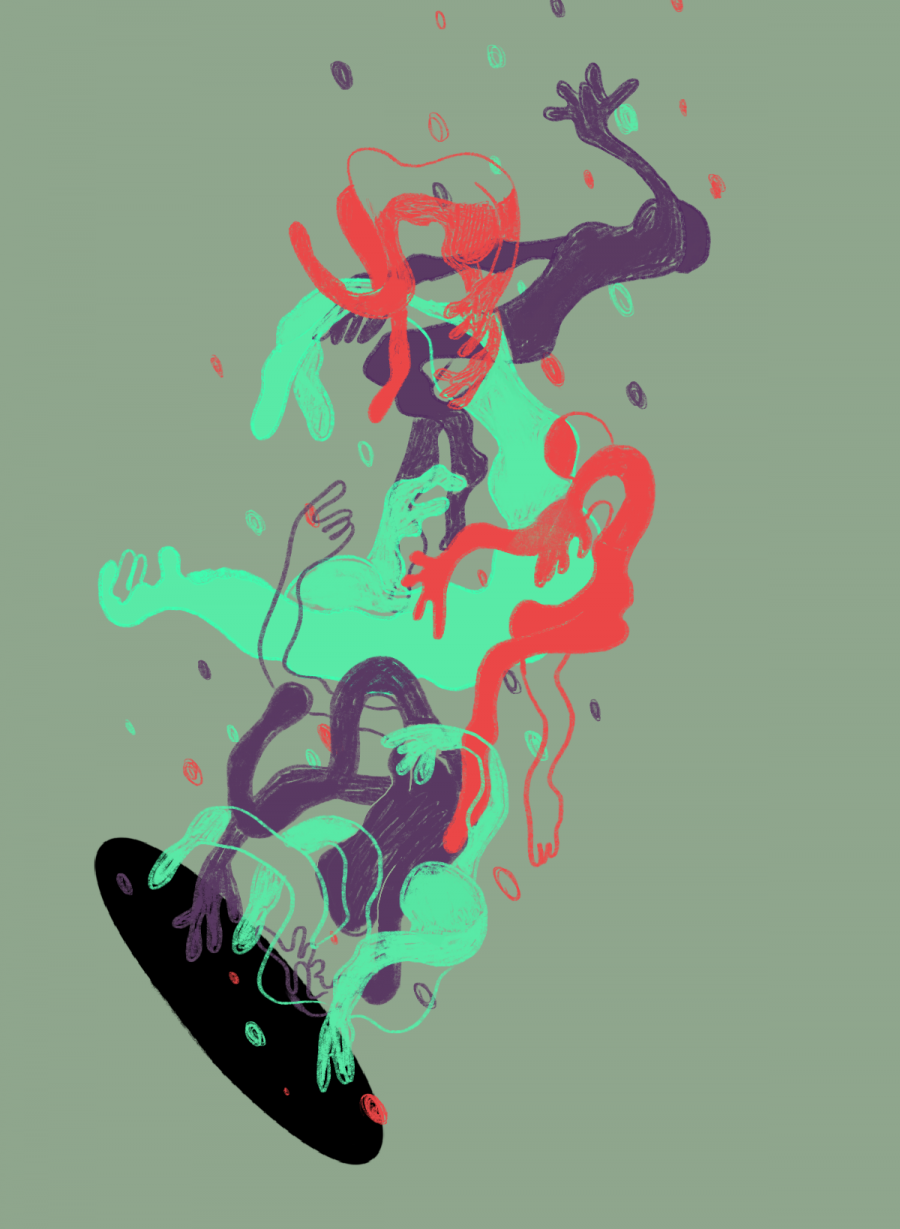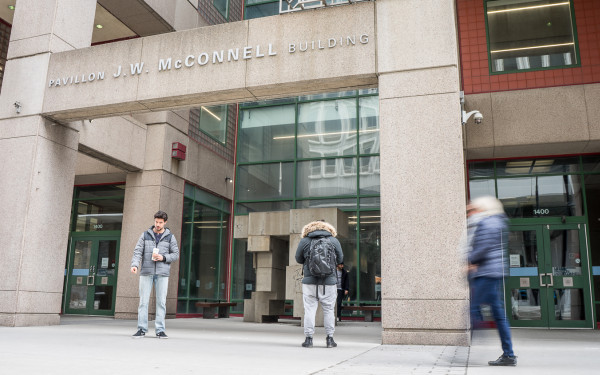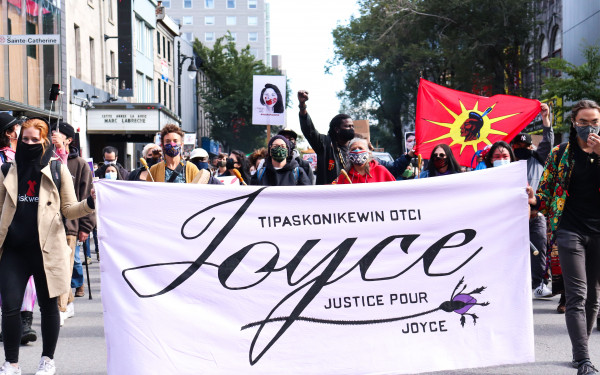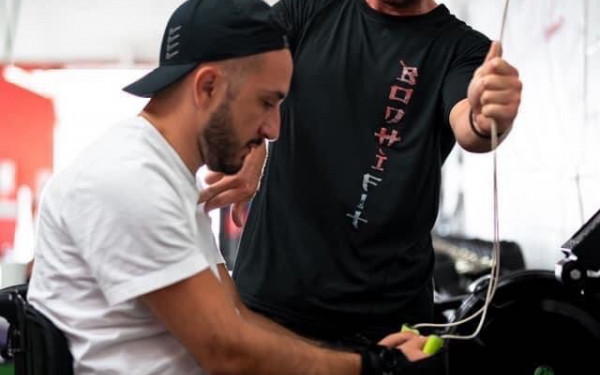Why Are Hate Crimes Underreported in Quebec?
The Significance of a Disparity Between Reports of Acts of Hate
As Nafija Rahman walked out of a bakery on Monkland Ave. in Notre-Dame-de-Grâce, an elderly woman accused her of having the blood of Canadian soldiers on her hands. Rahman answered that she and her ancestors had “the blood of Natives” on their hands. “Then she [almost] attacked me […] physically. I was shaking in anger while no one said anything,” she recalled.
Despite having experienced several similar incidents, Rahman is one of countless individuals who did not report them.
A report released by the Quebec Commission of Human Rights and Youth Rights (CDPDJ) revealed that 78 per cent of acts of hate in the province were not reported to any relevant authority, like the police.
The 86 victims interviewed for the study—from different backgrounds, countries of origin, communities, age, and gender—shared their stories.
Combined, they experienced 275 acts of hate or discrimination. About half of them were from Montreal and the rest from different cities around Quebec. The qualitative report, titled “Les actes haineux à caractère xénophobe, notamment islamophobes : résultats d’une recherche menée à travers le Québec,” was initiated in 2015 as a governmental action plan to combat radicalization.
The report’s summary, titled “Xenophobic and Notably Islamophobic Acts of Hate,” showed that hate crimes in Quebec had risen over the last decade. Between 2015 and 2016, there was an increase of 21 per cent in Quebec, and 2017 saw another rise of 49 per cent. In contrast, preliminary data for 2018 showed a 13 per cent decrease in hate crimes in Canada.
Why are they not reported?
Among the many reasons brought out in the CDPDJ’s report summary, what sums it all up is mistrust in the system. Victims are scared to approach the authorities or do not trust the system.
Most of all, those who do not have Canadian citizenship are afraid to go to institutions and file complaints, explained one of the researchers, Houda Asal.
“It’s really the mentality of an immigrant to say ‘I don’t want any troubles.’ They really fear repercussions, and in some cases they’re right,” she said.
Another major obstacle: victims are unaware of their rights and the protective laws.
Rahman too had the same reaction. She did not know where to go, or how to file a complaint. She doubted the validity of her case and felt like she was wasting resources. Why would they choose to believe her? She thought, “If women who are raped or beaten are not taken seriously, will they take this into consideration?”
According to Asal and the CDPDJ,the solution is to provide better training and education to the police, not only to better address acts of hate, but also to refer the victim to other appropriate resources.
The Service de police de la Ville de Québec’s annual report for 2018 showed one third the number of hate crimes that were recorded by Statistics Canada, with the SPVQ count at 27 to StatsCan’s 89. The SPVQ then released new figures that were double the initial count, stating the number of reported hate crimes and incidents should have been 60 and not 27.
“The best prevention measure is to get tough on those who commit hate acts or hate crimes. You need sanctions, you need tough punishment, you need zero tolerance of prosecution,” said Fo Niemi, co-founder and executive director at the Center for Research-Action on Race Relations. CRARR is a non-profit organization that aims to fight racism and establish race equality.
The CDPDJ highlighted the problems and obstacles people may face when filing a complaint. Their goal is to provide tools and resources to inform society, “to educate people to know their rights, to educate police services to take care of this issue more seriously, and ask the government also to take into account [their] findings [and recommendations],” said Asal. “But it’s not our mandate to commend on sanctions,” she added.
It is the responsibility of each institution and organization to use the information provided by the CDPDJ to implement the changes they see fit, explained Asal.
Inaction, however, may discourage even more people from seeking help.
“Right now the system is broken,” said Niemi.
“‘Am I a Quebecer, am I a Canadian?’ Because I was made to feel that I didn’t belong here.”
— Fatima Ahmad
In the summer of 2018, Niemi was working on a case for a Muslim family in Saint-Eustache who was constantly harassed, insulted, and threatened by their Québécois neighbours. They filed a complaint with the CDPDJ in June and asked them to help speed up the process because the children’s safety was at risk. They received an answer in spring 2019.
“That’s what makes people lose faith in the system, Niemi explained.
Those who constantly live in an environment where they have to be on guard face negative pyschological repercussions.
“A hate act adds up to other experiences that are already negative and diffcult,” said Asal, explaining that the combination of incidents in public areas, in the workplace, and the portrayal in the media ultimately have a significant psychological effect on the victims.
Fear and anxiety, isolation, humiliation, depression, fear for the future, and frustration were some of the impacts on victims listed in the CDPDJ’s report summary. “You don’t want to live in that kind of society where you feel not safe. When it’s very bad times, you don’t want to go outside,” said Fatima Ahmad, a fourth year university student at McGill.
When Bill 62 briefly passed in 2017, preventing those who cover their faces from accessing public services including public transit, she found herself feeling isolated.
Hate Acts vs. Hate Crime?
A hate crime—hate-motivated assault or threat, mischief against religious property, incitation of hatred and wilful promotion of hatred other than in a private conversation—harms or threatens a person’s or a community’s safety.
A hate act—discriminatory speech, discriminatory act such as caricatures, graffiti, signage, contemptuous attitudes or rejection and distribution, publication or public exhibition of a notice, symbol or sign involving discrimination—is a violation of human rights. A hate crime is a criminal offense, and a hate act can be a hate crime.
How does this affect Montreal communities?
In Rahman’s experience working with several organizations in Montreal and being a board member at Amal Center for Women—which aims to support women who are victims of violence—she noticed hate acts levels and tendencies vary according to the cultural landscape of each neighbourhood.
Amitié Soleil, a non-profit organization, is located in Little Burgundy, a very multicultural neighbourhood, according to Rahman, and hate acts happen rarely, she said. Rarely, but not never.
When Rahman was driving in that area one day, a passerby said, “Go back to your country,” she recalled.
“My mother was thrown eggs but she’s not going to community centres to report that, because there’s no place that you can report this kind of event,” she said.
Resources that are available to victims of hate acts are not made clear or obvious, Asal pointed out. But how useful are they really when they are accessible?
Ahmad is another example of someone deeply affected by the issue. She repeatedly experienced discriminatory behaviour walking the streets of her own city once she began wearing the niqab—a decision she made that reflected her faith and spiritual journey.
Although she was born and raised in Montreal, Ahmad began asking herself, “‘Am I a Quebecer, am I a Canadian?’ Because I was made to feel that I didn’t belong here.”
Last May—right before Bill 21, which prevents public service workers from wearing religious symbols, was passed into law—a man hit her chest and tried to pull off her niqab. Despite having taken a picture and video of the man and sending it to the police, she said there were never any repercussions.
“It’s really like a limbo,” she said, “you don’t know who will accept you, who won’t, who will discriminate [against] you. It’s like everyone has access to discriminate [against] you and you can’t even contest that because it’s their right or you don’t have that right.”
In response to that, Rahman believes the only way to take a step forward as a community is to become allies; to listen to others without preconceived judgment and try to understand and accept new perspectives outside of a society’s normalized perception.
“We don’t need to be angry but we need to address it,” said Rahman, who became tired of always having to prove herself.






